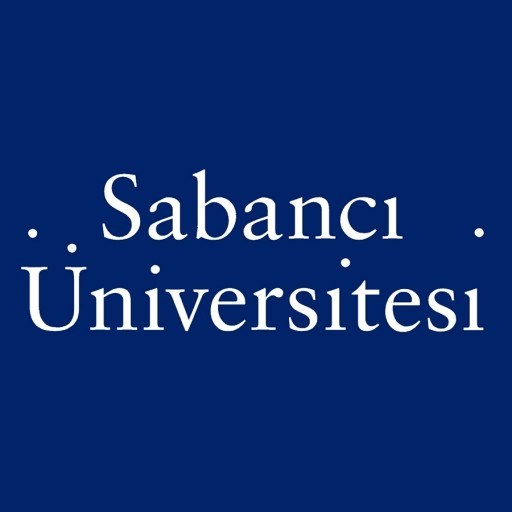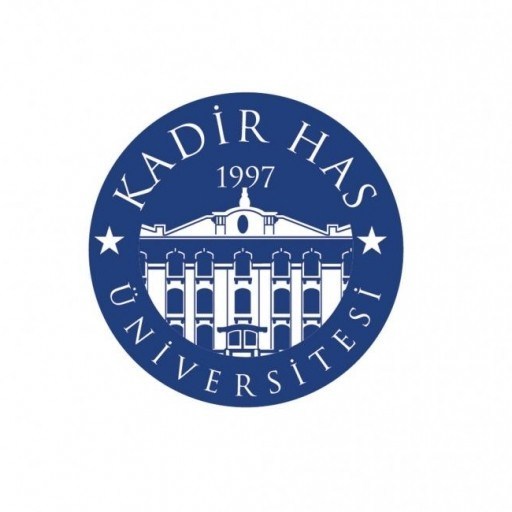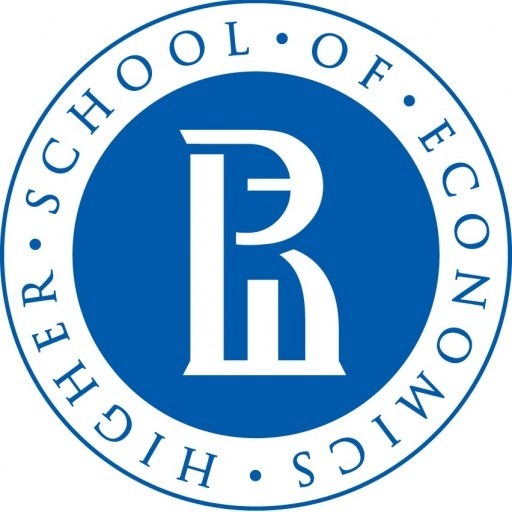Photos of university / #bilkentuniv
Political Science at Bilkent University offers a comprehensive undergraduate program designed to provide students with a deep understanding of the political systems, theories, and practices that shape the modern world. The curriculum combines theoretical knowledge with practical skills, enabling students to analyze political phenomena, evaluate policy options, and participate effectively in civic life. Throughout their studies, students explore a wide range of topics including comparative politics, international relations, political philosophy, and Turkish politics, among others. The program emphasizes critical thinking, research methodology, and effective communication, preparing graduates for careers in public administration, diplomacy, journalism, academia, and non-governmental organizations. Students also have opportunities to engage in internships, participate in seminars, and conduct original research, fostering an active learning environment. With a diverse faculty of experienced scholars and practitioners, the Political Science program aims to produce well-rounded graduates who are knowledgeable about global and regional issues and capable of contributing thoughtfully to societal development. Bilkent University's vibrant campus life, combined with state-of-the-art facilities and extensive academic resources, creates an ideal setting for students to thrive academically and personally. The program encourages interdisciplinary approaches and international perspectives, aligning with the university's commitment to excellence and innovation in education. Graduates of the program will be equipped with analytical tools, ethical understanding, and a broad worldview, ready to meet the challenges of an increasingly complex political landscape worldwide.
Detailed Course Facts
Application deadline 2014-2015 Academic Year Spring Semester, beginning on 2 February 2015, will be open between 15 October - 15 December 2014; 2015-2016 Academic Year Fall Semester, beginning in mid-September 2015, will be open between 15 October 2014 - 16 July 2015 Tuition fee- USD 13950 Year (International)
The annual tuition for international students beginning their program in September 2014 is 13,950 US Dollars (includes 8% VAT). Tuition fees are collected in two equal installments at the beginning of the Fall and Spring semesters. Tuition fees are payable in US Dollars only.
Start date February,September 2015 Duration full-time 48 months Languages Take an IELTS test- English
Course Content
FIRST YEAR
Autumn Semester
Course Name
- Introduction to Computing for Social Sciences
- Principles of Microeconomics
- English and Composition I
- Orientation
- History of Civilization I
- Introduction to Political Science I
- Turkish I
Spring Semester
Course Name
- Principles of Macroeconomics
- English and Composition II
- History of Civilization II
- Introduction to Political Science II
- Introduction to Social Psychology
- Turkish II
SECOND YEAR
Autumn Semester
Course Name
- Collegiate Activities Program I
- History of Turkey
- Constitutional Law I
- Social and Political Philosophy I
- Introduction to Sociology
- Basic Law Elective
Spring Semester
Course Name
- Collegiate Activities Program II
- Constitutional Law II
- Statistics for Social Sciences
- Social and Political Philosophy II
- Fundamentals of Social Research
THIRD YEAR
Autumn Semester
Course Name
- Introduction to World Politics
- Administrative Law
- Comparative Politics I
- Turkish Political Development
- Unrestricted I- Elective
Spring Semester
Course Name
- Comparative Politics II
- Contemporary Turkish Politics
- Restricted Elective
- Unrestricted I- Electives (2)
FOURTH YEAR
Autumn Semester
Course Name
- Summer Training
- Restricted Elective
- Transdisciplinary Senior Project
- Unrestricted I- Elective
- Unrestricted II- Elective
Spring Semester
Course Name
- Governance and Public Policy
- Restricted Elective
- Unrestricted I- Electives (2)
- Unrestricted II- Elective
RESTRICTED ELECTIVES
Course Name
- Political Sociology
- Culture and Change in Turkey
- Turkish Political History I
- Turkish Political History II
- Introduction to Law
- Turkish Public Law
- Religion and Politics in the Arab World
- Political Psychology
- Introduction to Political Anthropology
- The Contemporary Middle East
- Negotiation and Mediation in Politics
- Internet and Society
- Social Transformation in Turkey
- Turkish Political Thought I
- Health, Society and Politics
- Political Anthropology
- Research Methods
- Transnational Cultures
- Politics in Russia and the Commenwealth of Independent States
- European Society and Culture
- State and Society in Israel
- Turkish Political Thought II
- Public Policy
- Cosmopolis: From the Roman to the Ottoman and British Empires
- Policy, the State and the Public
- State Freedom and Sovereignty
- Contemporary Political Theory
- Social Theory: Past and Present
- Turkish Nationalism :Politics and Ideology
- Political Parties and Voting Behavior in Democracies
- Liberty and Liberalism
- Information Age Landscapes
- Foundations of Modern Political Theory
- Issues of Urbanization
- Ethics and Morality in Daily Life
- Political Parties and Interest Groups
- Gender and Politics
- Theory and Modern Society
- Issues in Modern Political Thought
- Civil Society in Turkey
- Politics and Society in Turkey
- Politics of European Integration
- Political Concepts
- State Society and Citizenship in Turkey
- Comparative Legislatures
- Politics Media and Propaganda
- World Politics I
- Literature and Society
- Nationalism and Citizenship in Comparative Perspective
- Interculturalism and Europe
- Issues in Political Theory
- Conflict, Violence, and Peace
- European Political Thought II
- Science, Society and Technology
- Democratization Process in Turkey
- European Union: The Challenges
- World Politics II
- Public Opinion and Political Behavior in Democracies
- Body and Emotions in Social Life
- Conflict Analysis and Resolution
- Liberalism and Socialism: Past and Present
- Life, Nature and Politics
- Seminar in Comparative Politics
- Issues in Comparative Politics
- Politics of International Migration
- Film and Politics
- Democracy, Development and Human Rights
- Issues of Urbanization
- Ethics and Politics
- State and Society in the EU Member States
- The Turkish Politics of Modernization and the Religious Debate
- International Political Economy
- Local and Global in Cities
- Seminar in Turkish Politics
- Seminar in Comparative Politics
- Advanced Academic English
- Democratization Process in Turkey
- The Public Sphere
- Seminar in Political Theory
- Configuration of Political Theory Today
- Politics, Culture, Nation and Gender
- Issues in Urban Studies
- Research Methods
- Political Theory :An Overview
- Seminar in Social and Cultural Studies:
- Politics of Nationalism and Ethnicity
- Political Cultures in the Middle East
- Hegel's Philosophy of Right
- Cultural Diversity Cosmopolitanism and Europe
- Social and Spatial Aspects of the Periphery
- Turkey in Its Muslim Environment
- Comparative Political Studies and Turkey
- Foreign Policy Analysis
- Seminar on the European Union
- European Union Politics
- Politics of Turkish Modernization
- Nationalism and Politics
- Power and State
- Political Theory in a Time of Terror
- The Ecology of Social Relations and Cultural Processes
- Issues in Political Psychology
- The Ultimate Sources of Politics
- Contemporary Issues in Human Rights
- Issues in Political Theory
- Voting Behavior and Political Parties
- Politics of the Self
- Social Scientific Inquiry and Qualitative Methods
- Politics and Society in Turkey
- Conflict, Violence, and Peace
- Issues in Comparative Politics
- Democracy, Development, and Human Rights
Language courses satisfy elective requirements for the third and fourth year electives, but only one language course per semester is allowed.
MINOR PROGRAM
Politics is essentially a decision-making process which distributes status, power and resources at all levels of human society, ranging from the family to the international system. Being one of the oldest social science disciplines, political science examines perennial questions such as how those decisions are made, who makes them, or who benefits from them.
The aim of the Minor Program in Political Science is to acquaint Bilkent students from any background with the academic study of politics. Students enrolled in any one of the Bilkent faculties might apply, provided that they fulfill the application criteria. The minor program is composed of six courses in total and four of those are compulsory. Depending on their major program, students are expected to take either one of Introduction to Political Science I or Social Transformation in Turkey. Other compulsory courses are Comparative Politics I, Turkish Political Development and Contemporary Turkish Politics. Minor program students are allowed to pick and choose any two Political Science courses as electives and they would be well-advised to concentrate in one of the sub-fields.
Prerequisite Courses: None
CURRICULUM
Courses
Course Name
- Comparative Politics I
- Turkish Political Development
- Contemporary Turkish Politics
- Electives (2)
- POLS 101 or POLS 104
English Language Requirements
IELTS band : 6.5 TOEFL iBT® test : 87
To study at this university, you have to speak English. We advice you to
take an IELTS test.Requirements
International students, who had graduated or are expecting to graduate from a High School equivalent to Turkish High Schools in Turkey, can apply to Bilkent University. All International applicants who are applying for full-time undergraduate degree programs are required to fill out the following application form at:
Online Application Form
The applications for:
- 2014-2015 Academic Year Spring Semester, beginning on 2 February 2015, will be open between 15 October - 15 December 2014
- 2015-2016 Academic Year Fall Semester, beginning in mid-September 2015, will be open between 15 October 2014 - 16 July 2015
How to complete your online application:
Step 1: Obtain a login ID and password
Step 2: Fill out the personal information part and upload the personal information page of your passport.
Step 3: Fill out the family Information part. All students who would like to be considered for partial tuition wavier recipients are recommended to fill out this part.
Step 4:REQUIRED DOCUMENTS
Bilkent accepts the photocopies of exams/diplomas and certificates listed below for application. In the absence of national or international exams, high school graduation score can be evaluated for admission. Scanned copies of Turkish or English translation of the high school diploma and official transcript along with the explanation of the high schools grading system should be submitted for application.
- - In the SAT I, a total score of at least 1000 out of 1600 (in the combined Critical Reading and Math Reasoning tests), depending on the department to which application is made.
- - In the General Certificate Education (GCE), including Cambridge International A Level, at least three A level scores, one of which is received in the particular subject area of the program applied for.
- - In the ACT examination, a minimum score of 24 in Mathematics, Science and Composite.
- - In the TQDK examination, a minimum score of 450 out of 700 in "Group II-III-IV" and a minimum score of 550 out of 700 in "Group I".
- - In the Baccalaureate Libanais examinations given in Lebanon, a diploma score of at least 14 in the Scientific Stream.
- - In the Tawjih examinations given in Jordan and Palestine, a minimum average of 85 points in all courses in the Scientific Stream.
- - In the West African Examinations Council - (International) Senior School Certificate examination (WAEC - SSCE), a maximum score of 2 in each of the six subjects, and a maximum total score of 9 from the same six subjects.
- - An International Baccalaureate diploma with a diploma score of at least 28 or higher up to 32 depending on the department to which application is made.
- - A French Baccalaureate diploma with a diploma score of at least 12.
- - ABITUR with a score of at least 4 and a minimum score of 5 out of 15 in the subjects related to the program applied for.
- - In the Libyan Al Shahada Al Thanawiya examination, a score of at least 195 in the Scientific Stream for Engineering and Science programs and at least 185 in the Social Sciences / Art Stream for other programs.
- - In the Gao Kao examination of the People's Republic of China, a score of at least 540 (It may vary according to the department applied for).
- - In Diploma Debirestan / Pisdanesgahi administered in Iran, with a score of at least 16 out of 20.
- - In the International University Test examination administered in Kazakhstan, a minimum score of 85 out of 100.
- - Gold, silver or bronze medals in the International Science Olympiads (*) recognized by TUBITAK (The Scientific and Technical Research Council of Turkey):
* (IOI) The International Olympiad in Informatics
(IBO) The International Biology Olympiad
(IPhO) The International Physics Olympiad
(IChO) The International Chemistry Olympiad
(IMO) The International Mathematical Olympiad
(JBMO) Junior Balkan Mathematical Olympiad
(BMO) Balkan Mathematical Olympiad
(BOI) Balkan Olympiad in Informatics
Step 5: ENGLISH PROFICIENCY
As Bilkent is an English medium university, students are required to meet the language requirement to be able to pursue their studies in their departments. The language requirement can be met through the submission of an exam result meeting the minimum requirements in any of the following exams as outlined below:
- TOEFL iBT, a score of at least 87
- IELTS Academic, a score of at least 6.5 with a minimum of 5.5 scored in every section
- CAE, a grade of at least "C"
- FCE, a grade of at least "B"
External exam results are valid for two years. When students submit results for any of the exams mentioned above, Bilkent University School of English Language reserves the right to investigate these exam results for reliability purposes, the right to give an exam to students to check the validity of their exam results, and the right to not accept exam results that are considered to be suspicious.
If students cannot submit an exam result which meets the minimum requirements, they can take the COPE exam administered by Bilkent University after registration. Students, who cannot meet the minimum pass score in the COPE exam, will have to attend classes in the English Language Preparatory Program which is a one to two year program where they will receive 25-30 hours of classroom input every week.
PLEASE NOTE: The exam results must be sent to the university directly by the related institution. The exam results that are not sent to the university by the related institution will not be accepted.
- TOEFL should be sent directly from ETS to Bilkent University - CODE: 0620.
- IELTS should be sent directly from British Council to Bilkent University.
Step 6: List and rank your selected programs up to 5 choices. Please note that students who choose Graphic Design; Fine Arts and Music must take an aptitude test administered by the related faculties in August.
Step 7: Please write a 250-word statement of purpose describing your academic goals and reasons to study at Bilkent.
Work Experience
No work experience is required.
The Political Science undergraduate program at Bilkent University offers a comprehensive curriculum designed to prepare students for various careers in government, international organizations, policy analysis, and academia. Regarding financing studies, the program provides several options for students to fund their education. Bilkent University primarily offers a range of scholarship and financial aid opportunities based on academic achievement, economic need, and other criteria. Merit-based scholarships are available for high-achieving students, covering partial or full tuition fees, and are awarded through a competitive selection process following entrance examinations and interviews. Additionally, Bilkent University provides need-based financial aid packages to support students from economically disadvantaged backgrounds, which may include tuition discounts, stipends, or a combination thereof.
Students are encouraged to apply for external scholarships, including government-sponsored programs and internationally recognized awards, which can supplement university-provided assistance. The university has a dedicated Financial Aid Office that guides students through the application processes for scholarships, loans, and payment plans. Moreover, students often have opportunities to work part-time on campus in various roles, such as research assistance or administrative support, which can help offset living expenses. The university also offers installment payment plans to accommodate students' financial situations, allowing tuition fees to be paid in manageable installments over a semester or an academic year.
Furthermore, Bilkent University collaborates with various institutions and foundations to enhance financial accessibility for students. International students may benefit from specific scholarships aimed at supporting their study abroad experience, with funding amounts varying based on the program and student profile. The university's aim is to ensure that financial barriers do not prevent talented students from pursuing their degrees in Political Science by providing diverse funding options. Overall, financing the Political Science program at Bilkent University involves a combination of university scholarships, external funding opportunities, part-time employment, and flexible payment arrangements, all designed to support students throughout their academic journey.
The Political Science undergraduate program at Bilkent University offers students a comprehensive education in the core principles, theories, and practices of politics and government. The curriculum is designed to equip students with critical thinking, analytical skills, and a deep understanding of political systems, international relations, public policy, governance, and democratic processes. The program emphasizes both theoretical foundations and practical applications, preparing graduates for careers in government, non-governmental organizations, international institutions, journalism, research, and academia.
Students enrolled in the program have the opportunity to study various subfields including comparative politics, international relations, political theory, and public administration. The program promotes a multidisciplinary approach, encouraging students to analyze political phenomena through historical, cultural, economic, and sociological lenses. Bilkent University also fosters an environment of active engagement with current political issues, offering seminars, workshops, and conferences that keep students informed about global and regional developments.
The faculty members are experienced scholars and practitioners who guide students through rigorous coursework, research projects, and internships. The program also encourages student participation in international exchange programs, providing opportunities to study abroad and gain global perspectives on politics and society. Graduates of the Political Science program at Bilkent University are well-prepared to pursue advanced studies or to enter the workforce in various sectors related to politics, diplomacy, policy analysis, media, and international relations.
Bilkent University has modern facilities and a supportive academic environment that enhances the learning experience. The program combines lectures, case studies, group projects, and independent research to ensure that students develop both theoretical knowledge and practical skills. Graduates leave with a strong foundation in political science, complemented by language proficiency, research methodology skills, and an understanding of ethical issues in politics and governance. The program’s interdisciplinary approach aims to produce informed, responsible, and adaptable individuals ready to contribute to their communities and beyond.










